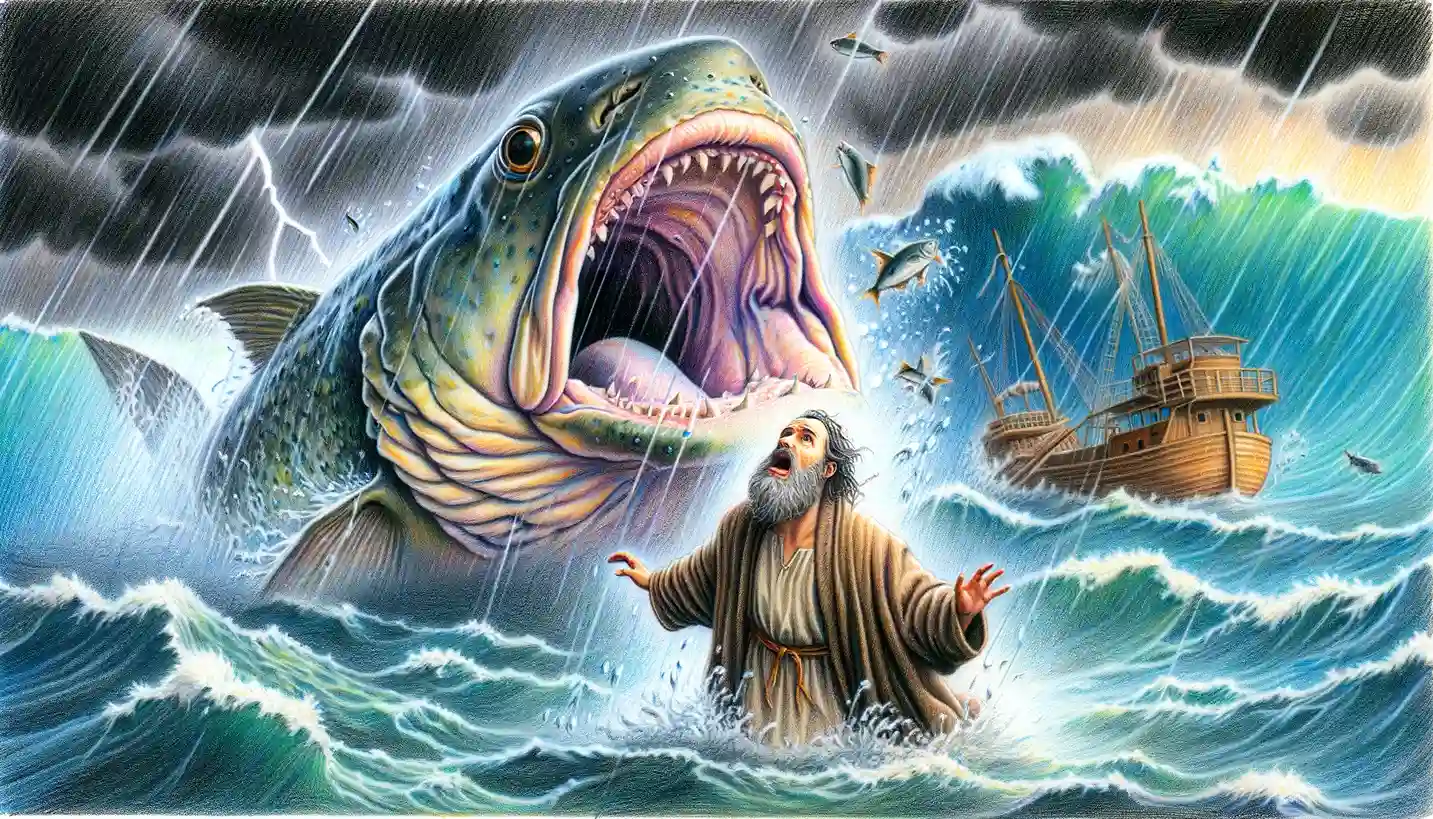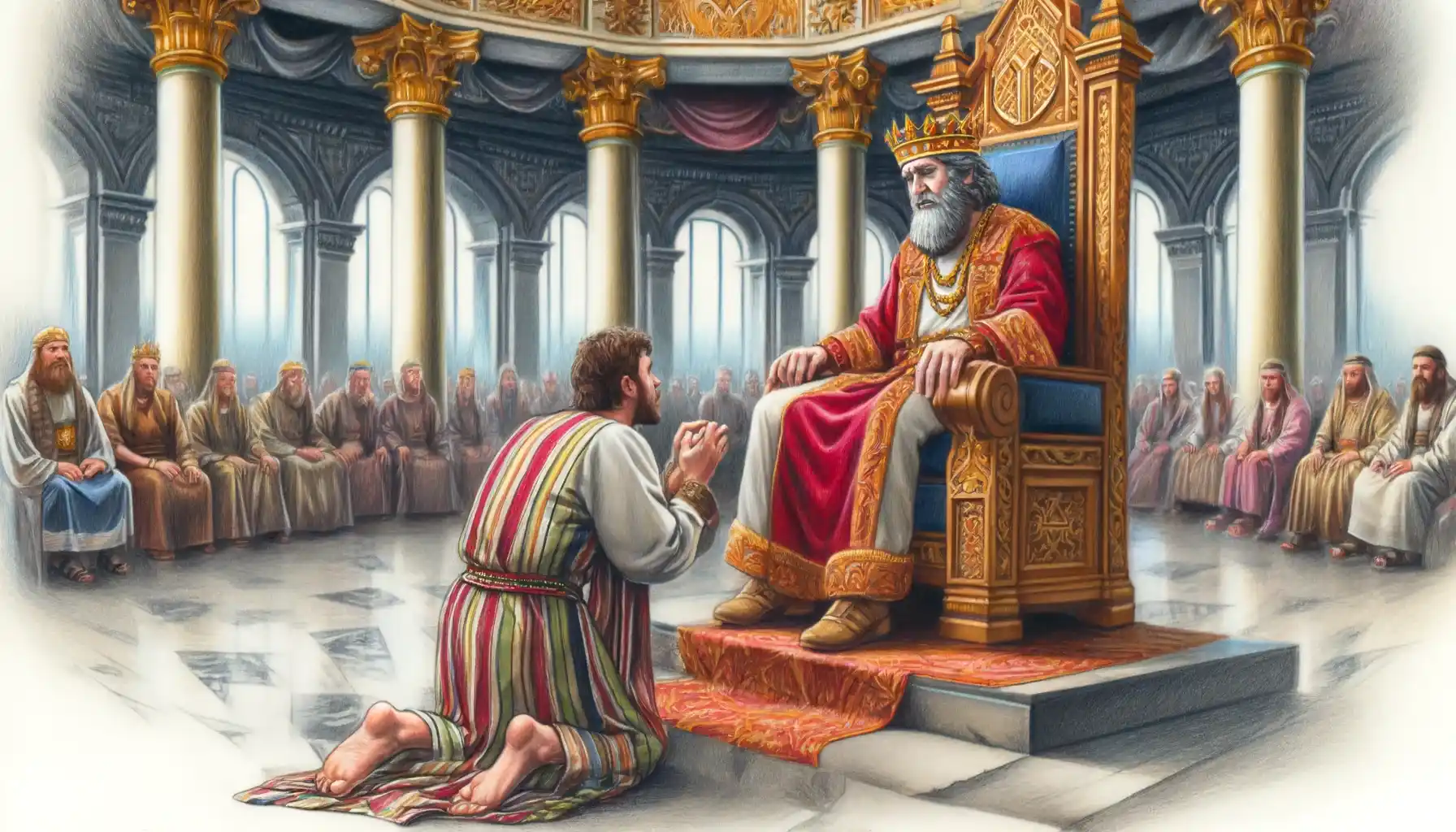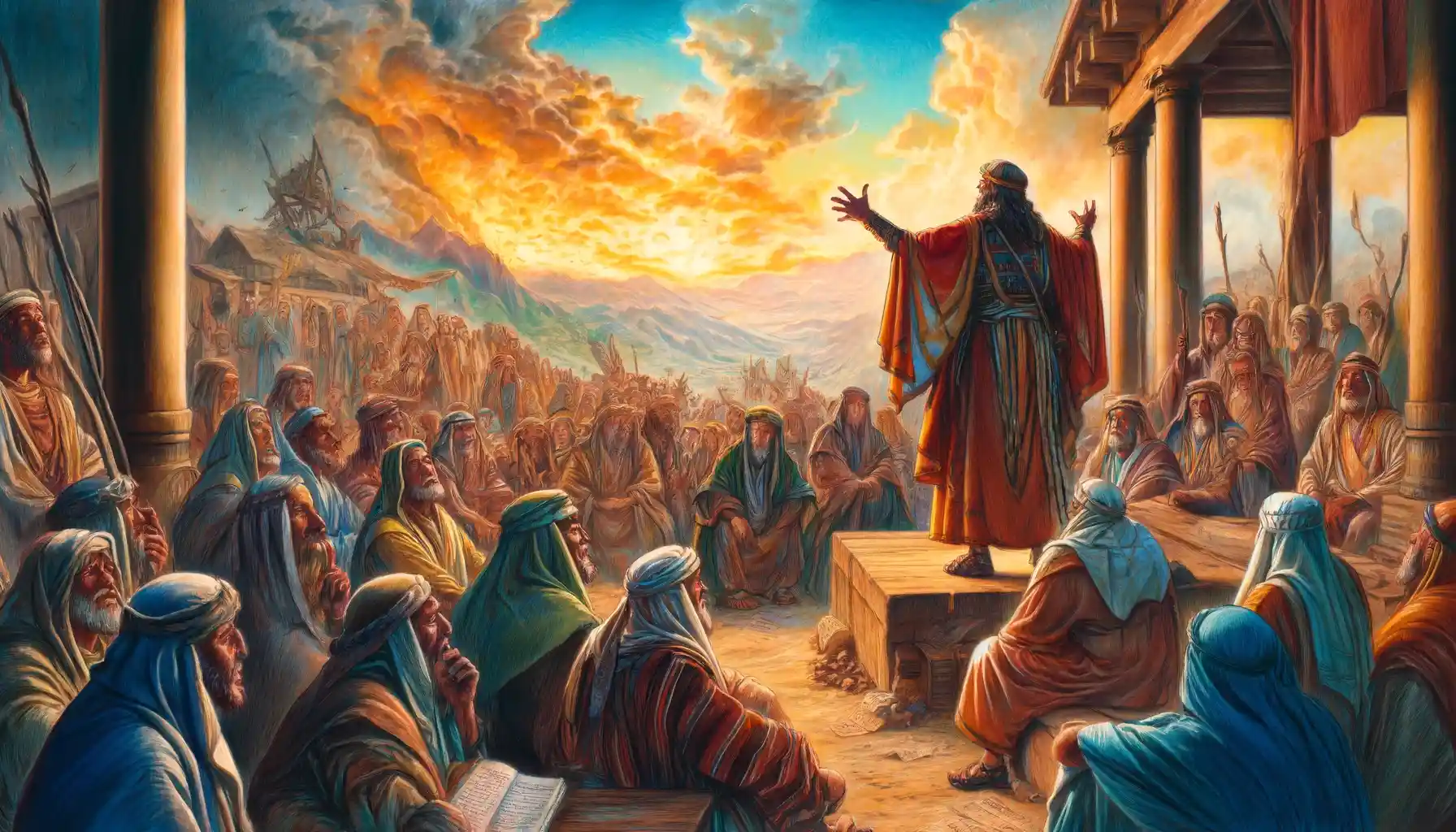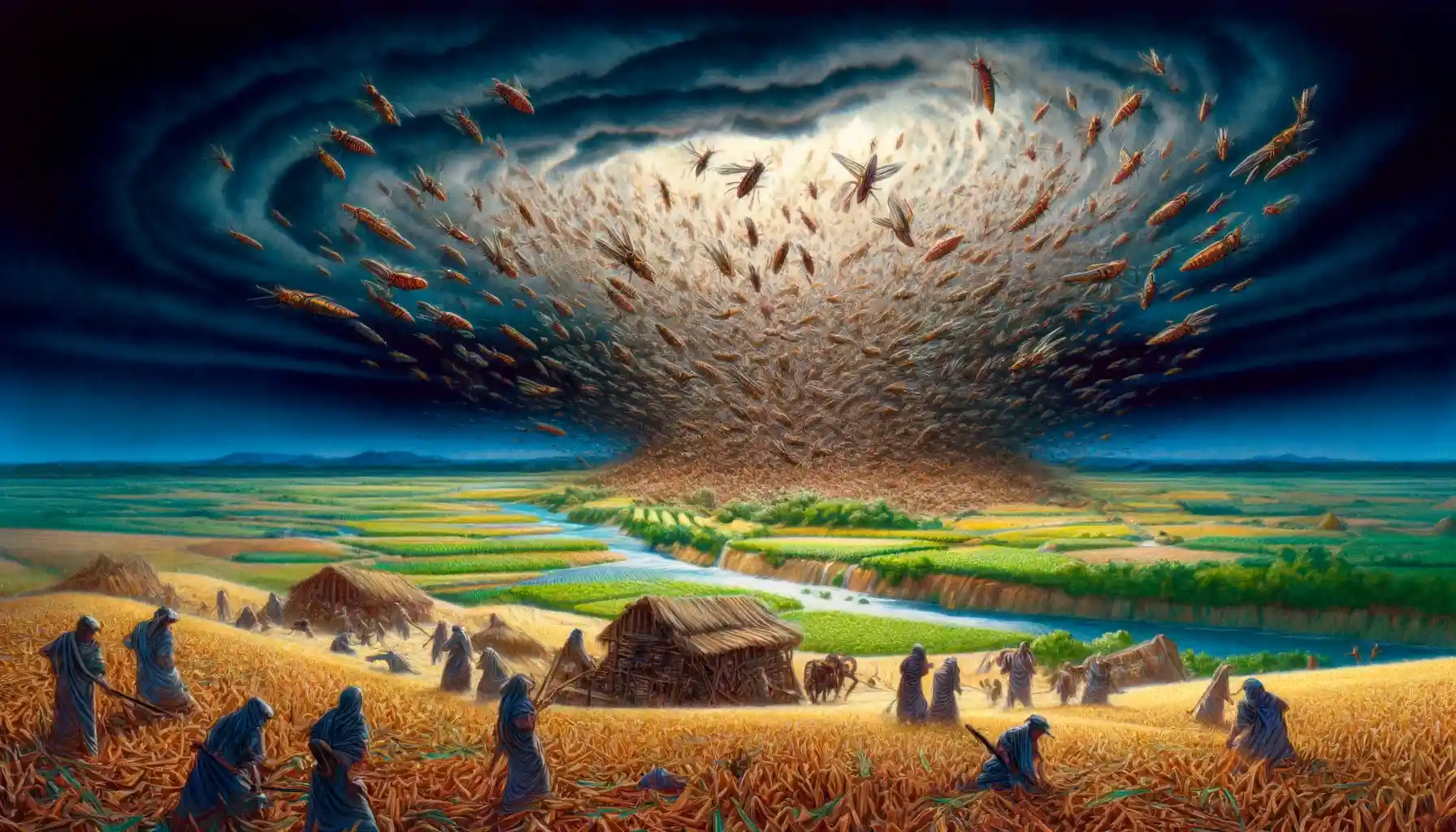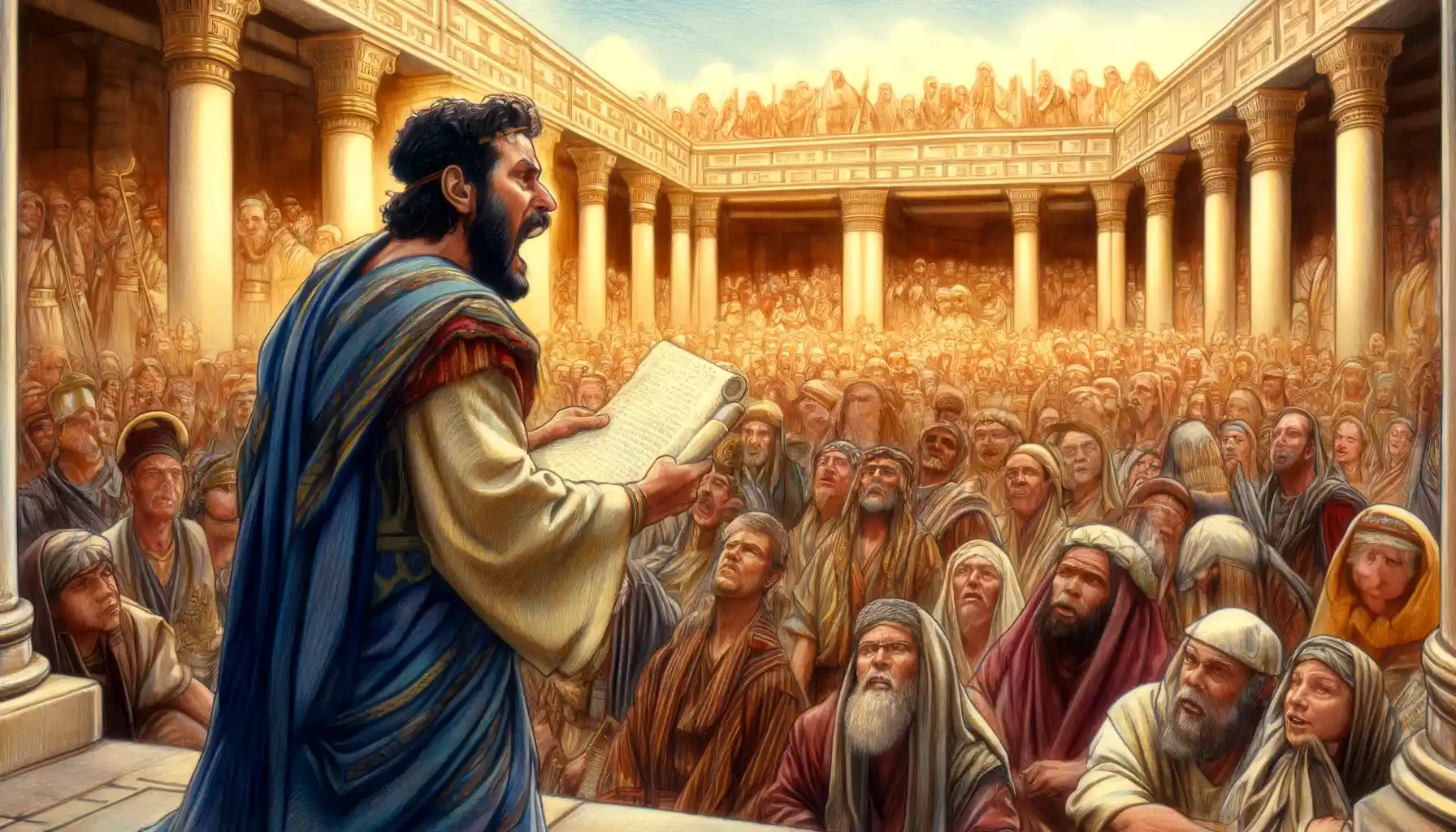Jonah, a prophet known for being swallowed by a great fish, initially fled from God’s command to preach to Nineveh, but after being delivered from the fish, he obeyed and led the city to repentance, demonstrating God’s mercy and the power of repentance.
The Parable of the Unforgiving Servant, as told in Matthew 18:21-35, illustrates Jesus’ teaching on the necessity of boundless forgiveness, depicting a servant who, after being forgiven a massive debt by his king, refuses to forgive a minor debt owed to him by another, leading to his punishment by the king who revokes his mercy in response to the servant’s lack of compassion.
Jonah’s prayer from within the fish, as recounted in Jonah 2:1-9, serves as a profound theological reflection on themes of distress, divine intervention, and deliverance, demonstrating his spiritual renewal and the immutable mercy of God even in the depths of despair.
Micah’s prophecies offer a blend of judgment and hope, with a strong emphasis on justice and the ethical dimensions of true faith.
The Book of Jonah remains a deeply symbolic text that explores themes of repentance, divine mercy, and the sometimes uncomfortable breadth of God’s grace.
The Book of Joel provides a rich tapestry of prophetic insights, balancing stern warnings with hopeful promises, making it a text of significant religious and moral teachings.
Jeremiah’s messages, marked by their intensity and range from despair to hope, offer a deep exploration of the challenges and responsibilities of being in a covenant relationship with God.

